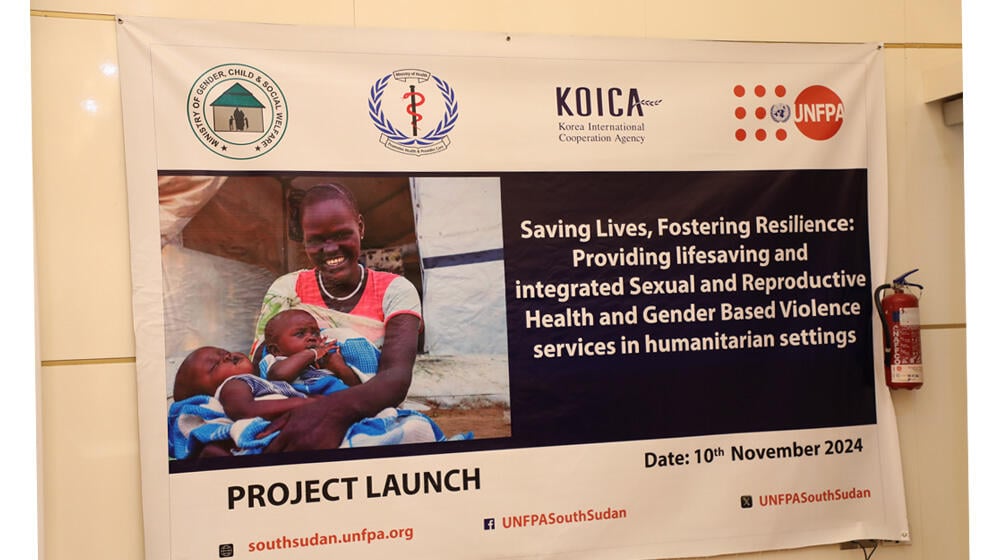10 December 2024; UNFPA – UNFPA, the Sexual and Reproductive Agency with the Ministry of Gender, Child and Social Welfare (MoGCSW) and Ministry of Health (MoH) together with partners with financial support from KOICA – Korea International Cooperation Agency are launching a project that will contribute to respond to the needs and improving the well-being of women and girls affected by severe insecurity and climate shocks.
Most of South Sudan"s population have limited access to fundamental social services and especially women's and girls’ needs are too often overlooked. In addition, socio-cultural beliefs and norms pose additional barriers to sexual and reproductive health services, exacerbating maternal health and gender-based violence (GBV) concerns. Conflict-related sexual violence, GBV, and child protection issues remain prevalent, with preliminary data highlighting the disproportionate impact on various groups, including refugees, internally displaced persons (IDPs), and individuals with disabilities.
To increase the availability of quality lifesaving, integrated SRH and GBV services in protracted crisis, KOICA signed partnership with UNFPA to provide reproductive health and protection services and support to women and girls affected by crisis. The KOICA-UNFPA partnership will be implemented for the period of three years 2024-2026 and invest $4,536,677.
Accessibility to healthcare especially essential life-saving services remain a challenge in affected areas of South Sudan putting lives of most women and girls at high risk. We thank KOICA for the generous funding that will scale-up the health and protection services for the well-being of women and girls for everyone in the communities to thrive” said Ms. Esperance Fundira, UNFPA Officer in Charge.
This project will be implemented in Jonglei, Unity, and Upper Nile states. The three geographical locations remain strategic for UNFPA South Sudan's programmatic interventions – ensuring equitable access to critical SRH services, GBV protection and response services for populations affected, leverage community-level peace building efforts to foster a conducive environment and participate meaningfully as young women and men in line with the leave no-one behind principle.


